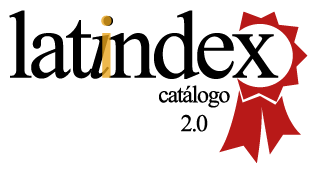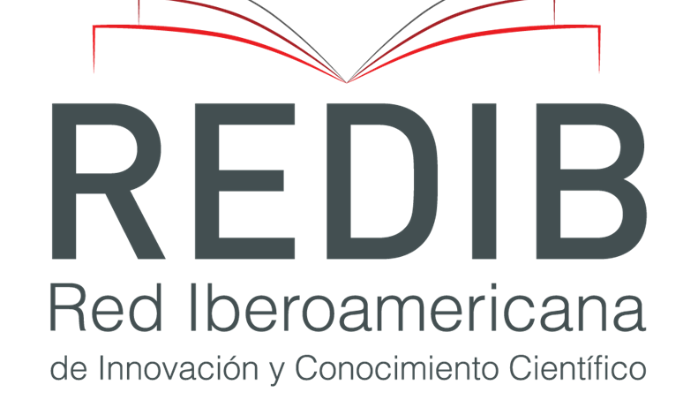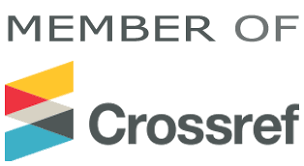Implementing Zero Trust Architectures: A Systematic Review of Benefits and Drawbacks
DOI:
https://doi.org/10.47796/ing.v8i00.1331Keywords:
Zero Trust Architecture, Cybersecurity, Information securityAbstract
Given the constant evolution of digital threats and the inherent limitations of traditional security approaches, Zero Trust Architectures (ZTA) have been developed as an alternative aimed at strengthening the protection of digital environments through continuous verification and contextual access control. This study systematically synthesizes and analyzes the quantifiable benefits, technical limitations, organizational challenges, proposed solutions, and evaluation metrics associated with the implementation of ZTA, considering the technical, cultural, and structural factors that influence its adoption. Through a systematic review conducted in specialized academic databases, twenty articles were analyzed following a rigorous filtering process. The results reveal significant improvements in security posture and a reduction in attack risk, driven by microsegmentation and continuous authentication; however, limitations were identified related to insufficient training, operational complexity in multicloud environments, and organizational resistance to change. It is concluded that the effectiveness of ZTA depends on its strategic integration with standardized frameworks and adequate change management within organizations.
Downloads
References
Ahmad, I., Gimhana, S., Ahmad, I., y Harjula, E. (2025). Adaptive Trust Architecture for Secure IoT Communication in 6G. IEEE Networking Letters, 7(2), 113–116. https://doi.org/10.1109/lnet.2025.3566909
Ahmadi, S. (2025). Autonomous identity-based threat segmentation for zero trust architecture. Cyber Security and Applications, 100106, 100106. https://doi.org/10.1016/j.csa.2025.100106
Ahmed, S., Shihab, I. F., y Khokhar, A. (2025). Quantum-driven zero trust architecture with dynamic anomaly detection in 7G technology: A neural network approach. Measurement: Digitalization, 2–3(100005), 100005. https://doi.org/10.1016/j.meadig.2025.100005
Ali, B., Gregory, M. A., Li, S., y Dib, O. A. (2024). Implementing zero trust security with dual fuzzy methodology for trust-aware authentication and task offloading in Multi-access Edge Computing. Computer Networks, 241(110197), 110197. https://doi.org/10.1016/j.comnet.2024.110197
Al-Zewairi, M., Almajali, S., Ayyash, M., Rahouti, M., Martinez, F., y Quadar, N. (2025). Multi-stage enhanced zero trust intrusion detection system for unknown attack detection in Internet of Things and traditional networks. ACM Transactions on Privacy and Security, 28(3), 1–28. https://doi.org/10.1145/3725216
Cao, Y., Pokhrel, S. R., Zhu, Y., Doss, R., y Li, G. (2024). Automation and orchestration of Zero trust architecture: Potential solutions and challenges. Machine Intelligence Research, 21(2), 294–317. https://doi.org/10.1007/s11633-023-1456-2
DeCusatis, C., Liengtiraphan, P., Sager, A., y Pinelli, M. (2016, 18 al 20 de noviembre). Implementing zero trust cloud networks with transport access control and first packet authentication [conferencias]. 2016 IEEE International Conference on Smart Cloud (SmartCloud), New York, Estados Unidos. https://doi.org/10.1109/SmartCloud.2016.22
Federici, F., Martintoni, D., y Senni, V. (2023). A zero-trust architecture for remote access in industrial IoT infrastructures. Electronics, 12(3), 566. https://doi.org/10.3390/electronics12030566
Ferretti, L., Magnanini, F., Andreolini, M., y Colajanni, M. (2021). Survivable zero trust for cloud computing environments. Computers & Security, 110(102419), 102419. https://doi.org/10.1016/j.cose.2021.102419
Hasan, S., Amundson, I., y Hardin, D. (2024). Zero-trust design and assurance patterns for cyber–physical systems. Journal of Systems Architecture, 155(103261), 103261. https://doi.org/10.1016/j.sysarc.2024.103261
He, Y., Huang, D., Chen, L., Ni, Y., y Ma, X. (2022). A survey on zero trust architecture: Challenges and future trends. Wireless Communications and Mobile Computing, 2022(1), 1–13. https://doi.org/10.1155/2022/6476274
Joshi, H. (2025). Emerging technologies driving zero trust maturity across industries. IEEE Open Journal of the Computer Society, 6, 25–36. https://doi.org/10.1109/ojcs.2024.3505056
Katsis, C., Cicala, F., Thomsen, D., Ringo, N., y Bertino, E. (2022, 24 al 27 de abril). Neutron: A graph-based pipeline for zero-trust network architectures [conferencia]. Proceedings of the Twelveth ACM Conference on Data and Application Security and Privacy. Baltimore, Estados Unidos. https://doi.org/10.1145/3508398.3511499
Khurshid, K., Usman Hadi, M., Al Bataineh, M., y Saeed, N. (2025). Securing AIoT Surveillance: Techniques, Challenges, and Solutions. IEEE Open Journal of the Communications Society, 6, 6517–6550. https://doi.org/10.1109/ojcoms.2025.3593311
Nasiruzzaman, Ali, M., Salam, I., y Miraz, M. H. (2025). The evolution of zero Trust Architecture (ZTA) from concept to implementation. En arXiv [cs.CR]. https://doi.org/10.48550/ARXIV.2504.11984
Page, M. J., McKenzie, J. E., Bossuyt, P. M., Boutron, I., Hoffmann, T. C., Mulrow, C. D., Shamseer, L., Tetzlaff, J. M., Akl, E. A., … (2021). Declaración PRISMA 2020: una guía actualizada para la publicación de revisiones sistemáticas. Revista española de cardiología, 74(9), 790–799. https://doi.org/10.1016/j.recesp.2021.06.016
Peepliwal, A. K., Pandey, H. M., Prakash, S., Chowhan, S. S., Kumar, V., Sharma, R., y Mahajan, A. (2024). A prototype model of zero trust architecture blockchain with EigenTrust-based practical byzantine fault tolerance protocol to manage decentralized clinical trials. Blockchain: Research and Applications, 100232, 100232. https://doi.org/10.1016/j.bcra.2024.100232
Phiayura, P., y Teerakanok, S. (2023). A comprehensive framework for migrating to zero trust architecture. IEEE access: practical innovations, open solutions, 11, 19487–19511. https://doi.org/10.1109/access.2023.3248622
Polinati, A. K. (2025). Hybrid cloud security: Balancing performance, cost, and compliance in multi-cloud deployments. En arXiv [cs.CR]. https://doi.org/10.48550/ARXIV.2506.00426
Ramachandran, H., Smith, R., Awuson K., Al-Hadhrami, T., y Acharya, P. (2025). Towards net zero resilience: A futuristic architectural strategy for cyber-attack defence in industrial control systems (ICS) and operational technology (OT). Computers, Materials & Continua, 82(2), 3619–3641. https://doi.org/10.32604/cmc.2024.054802
Sasada, T., Kawai, M., Masuda, Y., Taenaka, Y., y Kadobayashi, Y. (2023). Factor analysis of learning motivation difference on cybersecurity training with zero trust architecture. IEEE access: practical innovations, open solutions, 11, 141358–141374. https://doi.org/10.1109/access.2023.3341093
Syed, N. F., Shah, S. W., Shaghaghi, A., Anwar, A., Baig, Z., y Doss, R. (2022). Zero trust architecture (ZTA): A comprehensive survey. IEEE access: practical innovations, open solutions, 10, 57143–57179. https://doi.org/10.1109/access.2022.3174679
Verma, P. K., Singh, B., Shubham, P., Sharma, K., y Prasad Joshi, R. (2024). Evaluating the effectiveness of Zero Trust Architecture in protecting against advanced persistent threats. ADCAIJ Advances in Distributed Computing and Artificial Intelligence Journal, 13, e31611. https://doi.org/10.14201/adcaij.31611
Wan, T., Shi, B., y Wang, H. (2025). A continuous authentication scheme for zero-trust architecture in industrial internet of things. Alexandria Engineering Journal, 122, 555–563. https://doi.org/10.1016/j.aej.2025.03.012
Yeoh, W., Liu, M., Shore, M., y Jiang, F. (2023). Zero trust cybersecurity: Critical success factors and A maturity assessment framework. Computers & Security, 133(103412), 103412. https://doi.org/10.1016/j.cose.2023.103412
Zanasi, C., Russo, S., y Colajanni, M. (2024). Flexible zero trust architecture for the cybersecurity of industrial IoT infrastructures. Ad Hoc Networks, 156(103414), 103414. https://doi.org/10.1016/j.adhoc.2024.103414
Zyoud, B., y Lebai, S. (2024). The role of information security culture in zero trust adoption: Insights from UAE organizations. IEEE access: practical innovations, open solutions, 12, 72420–72444. https://doi.org/10.1109/access.2024.3402341
Downloads
Published
How to Cite
Issue
Section
License
Copyright (c) 2025 Alex Fidel Gil Villa, Sebastián Alberto Espinoza Dávalos, Alberto Carlos Mendoza de los Santos

This work is licensed under a Creative Commons Attribution 4.0 International License.








